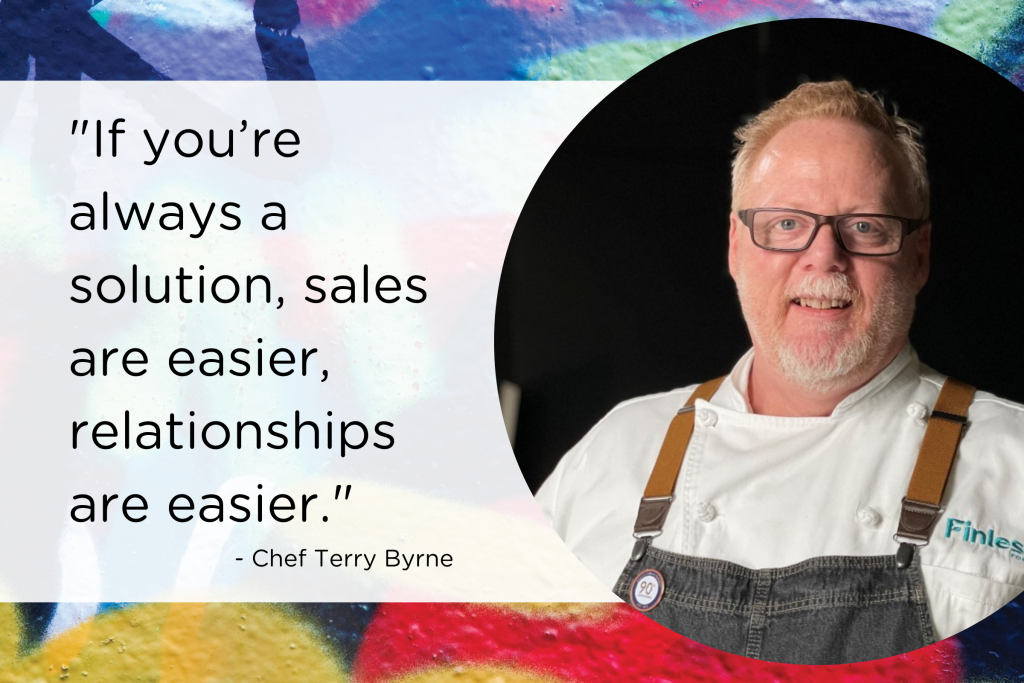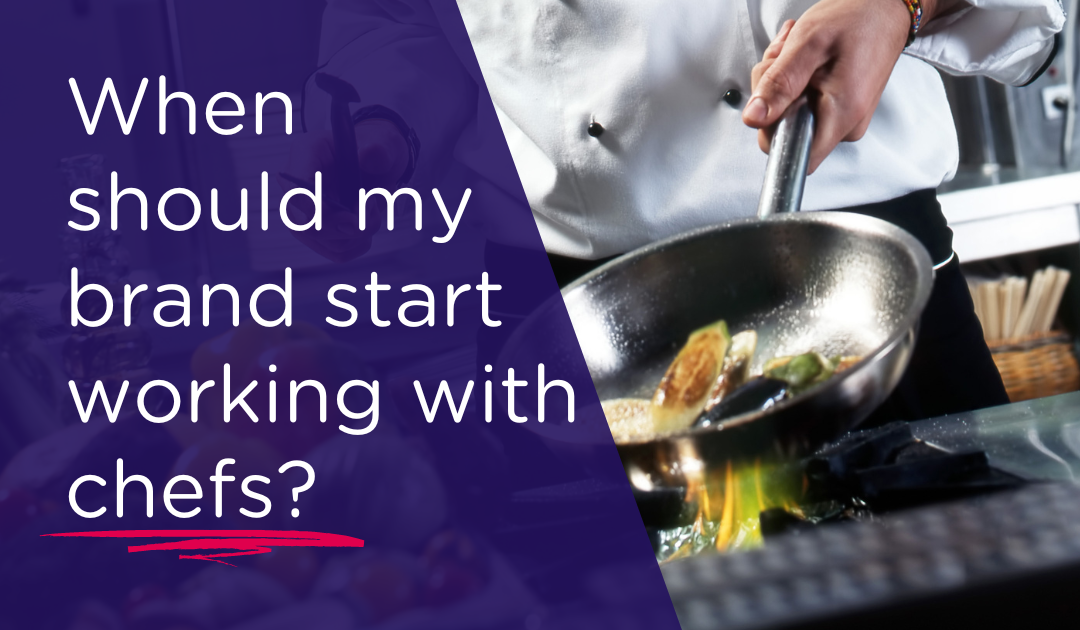Food innovators often have a lot of plates spinning as they go to market, and culinary professionals can help provide some of that momentum. Between the innovation of a new product and the business of funding, strategy, launch and marketing, entrepreneurs have a lot to think about and consider. Mission-based founders often also add concerns about sustainability, animal welfare, improving people’s health or the environment, and still feel the real-world necessity of selling the product and turning a profit. Fortunately, all along the foodservice value chain, culinary experts can help to make sure the most vital plate keeps turning around and around – chefs make sure it tastes good.
Culinary Resources in R&D and Manufacturing
Research and development chefs work with scientists and innovators to make sure new products start out with the right texture, mouthfeel, and taste. As Chef Terry Byrne says, “You can engineer anything you want, but that doesn’t make me want to eat it.” Chefs in the R&D space provide that other piece of the puzzle, and make sure that we want to eat it.
Once the trial-and-error of initial development is complete, research chefs may help make sure that formulations scale up correctly, respond to operator and customer feedback, and monitor quality consistency.
Culinary Support in Sales and Marketing

Now that we’ve become a Food Network world, celebrity and influencer chefs can help new brands break into foodservice through the power of their personal brands. Whether they’ve appeared on a television show, have a well-known YouTube channel or lots of Instagram followers, influencers can get the word out and help brands grow.
Having the right team onboard can help new brands connect with the right distributors and operators in the culinary world, which can be a small one.
Chefs affiliated with restaurant associations, American Culinary Federation, or schools like Culinary Institute of America bring with them a world of connections and relationships. A chef who’s built relationships in the culinary world can introduce cutting-edge products that may push the envelope on technology and sustainability to established chefs and to new minds who are part of our culinary future.
Marketing can include chefs on social media and in-person events – building professional relationships on LinkedIn, showcasing brands on Instagram, representing a product at events like Culinary Fight Club, or talking to distributors and operators at the National Restaurant Association or other trade shows.
“In some ways,” Chef Terry says, “culinary is the most important cog in the wheel. If people aren’t making things with what you’re selling, then people aren’t going to buy it. As Dimitra Rizzi says, there has to be a there, there.”
Meet a Need, Build a Relationship

Retail may resemble a science, with projected orders and numbers, but foodservice, and especially its culinary aspect, is an art. Foodservice feels less transactional, because we constantly build business and keep up relationships with other members of the value chain and with individuals in the industry. It draws in a different kind of person.
The most important thing a brand can do, at any stage of development, is to address a need. To quote Chef Terry, again, “I try to always focus on customer need, because then you’re solving something for that customer. If you’re always a solution, sales are easier, relationships are easier.” Representing brands that taste good and perform consistently in recipes builds the right kind of trust with distributor and operator customers. That trust grows when your brand helps get consumers in the door, increases kitchen efficiency, and benefits the bottom line.
Breaking into the culinary world and using the expertise to be found there, in the research and development stages and in the sales and marketing processes, can help entrepreneurs start those new-brand plates spinning, and keep them going. The right culinary team cultivates relationships and makes sure that your product always tastes good and addresses a need. They serve as the cog that connects the art of food and foodservice to real-world success and sustainable profitability.


Recent Comments